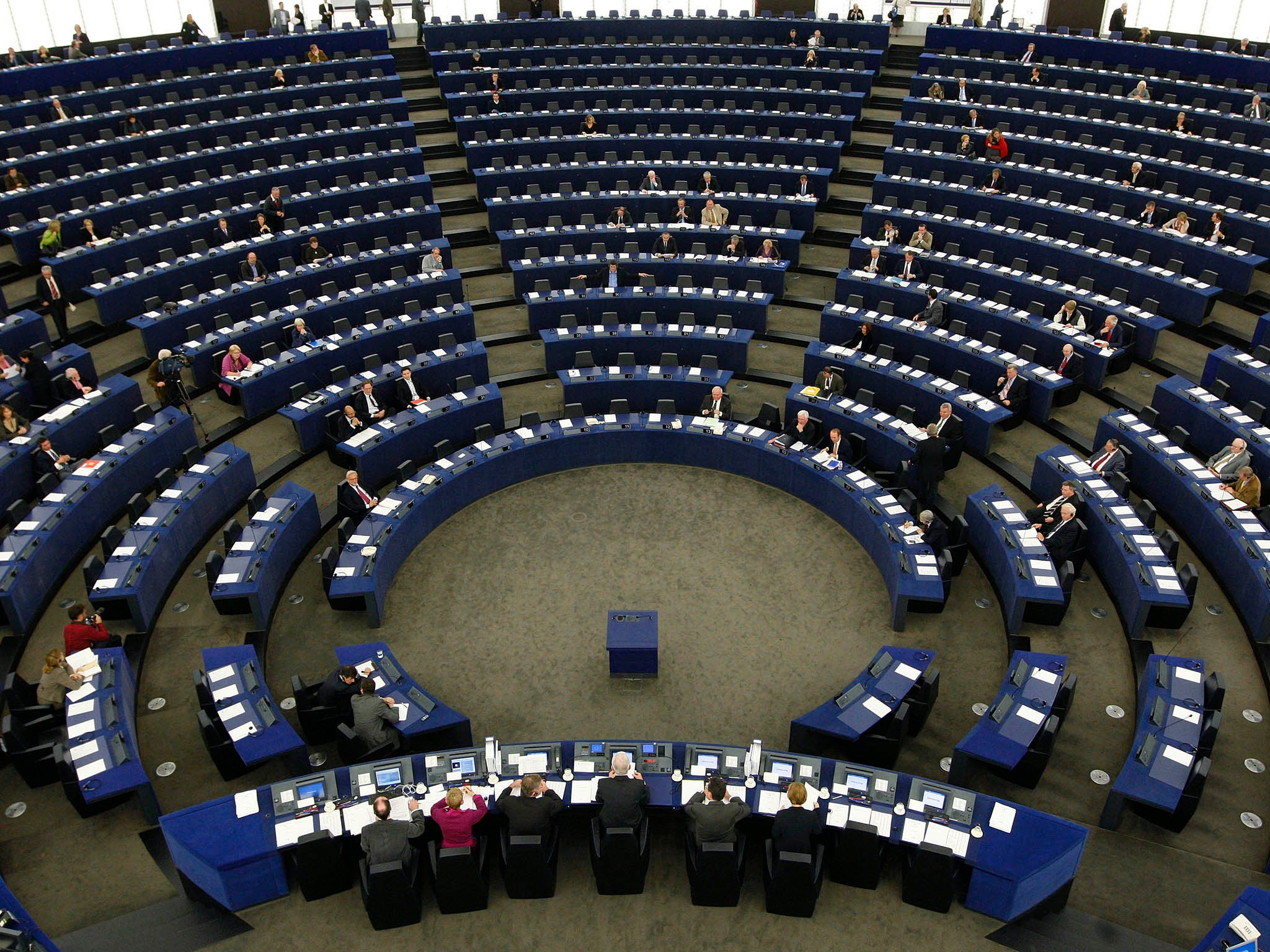Brexit: MEPs vote to shrink European Parliament after Britain leaves
Door also opened to some MEPs being elected on Europe-wide lists rather than by one country

Your support helps us to tell the story
From reproductive rights to climate change to Big Tech, The Independent is on the ground when the story is developing. Whether it's investigating the financials of Elon Musk's pro-Trump PAC or producing our latest documentary, 'The A Word', which shines a light on the American women fighting for reproductive rights, we know how important it is to parse out the facts from the messaging.
At such a critical moment in US history, we need reporters on the ground. Your donation allows us to keep sending journalists to speak to both sides of the story.
The Independent is trusted by Americans across the entire political spectrum. And unlike many other quality news outlets, we choose not to lock Americans out of our reporting and analysis with paywalls. We believe quality journalism should be available to everyone, paid for by those who can afford it.
Your support makes all the difference.An influential European Parliament committee has backed a plan that would shrink the size of the elected body– and also potentially see some MEPs elected by voters across Europe instead of one designated country.
Britain currently elects 73 MEPs to the 751-member parliament, and the country’s impending departure from the bloc has left Brussels wondering what should be done with the seats after Brexit.
Under the proposal voted for by the Constitutional Affairs Committee on Tuesday, the EU’s Parliament would reduce from 751 to 705 members, using up 46 of the spare seats.
A further 27 of Britain’s former seats will be redistributed between existing member states delegations in a bid to compensate for any biases in the allocation of MEPs.
Spain and France would both gain five more seats under the plan, while Italy and the Netherlands would gain three. Ireland would gain two MEPs while Denmark, Estonia, Croatia, Austria, Poland, Romania, Slovakia, Finland, and Sweden would pick up one extra seat each.
The report backed by the committee also suggested that some seats could in future be reserved for Europe-wide lists of candidates. That contentious issue was effectively kicked into the long grass, however, with no specific proposals spelled out in detail. The idea has the backing of French president Emmanuel Macron as a way of reforming Europe.
MEPs on the committee backed the comprise proposal by 20 votes to four, with one abstention.
“This will make our institution leaner whilst ensuring its political operability,” said Danuta Hübner, a Polish centre-right MEP who drafted the report said. “Through tough negotiations on a politically-sensitive dossier, we have managed to ensure an outcome that is both legally and politically feasible, whilst respecting the treaty.”
All the parliament’s MEPs are expected to vote on the proposal before the end of February. The plans would also have to be approved by the heads of government of EU member states at the European Council meeting before they were implemented.
The European Parliament is currently the largest lower house of any legislature in the world, other than China’s National People’s Congress, which has little power. The reform would move it down by one place in the world ranking, just below the German Bundestag, but still bigger than the British House of Commons.
The next European Parliament elections will be in 2019, with Britain not expected to participate because of its departure.
Join our commenting forum
Join thought-provoking conversations, follow other Independent readers and see their replies
Comments